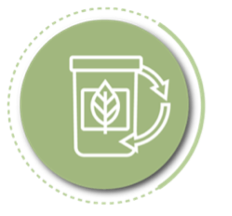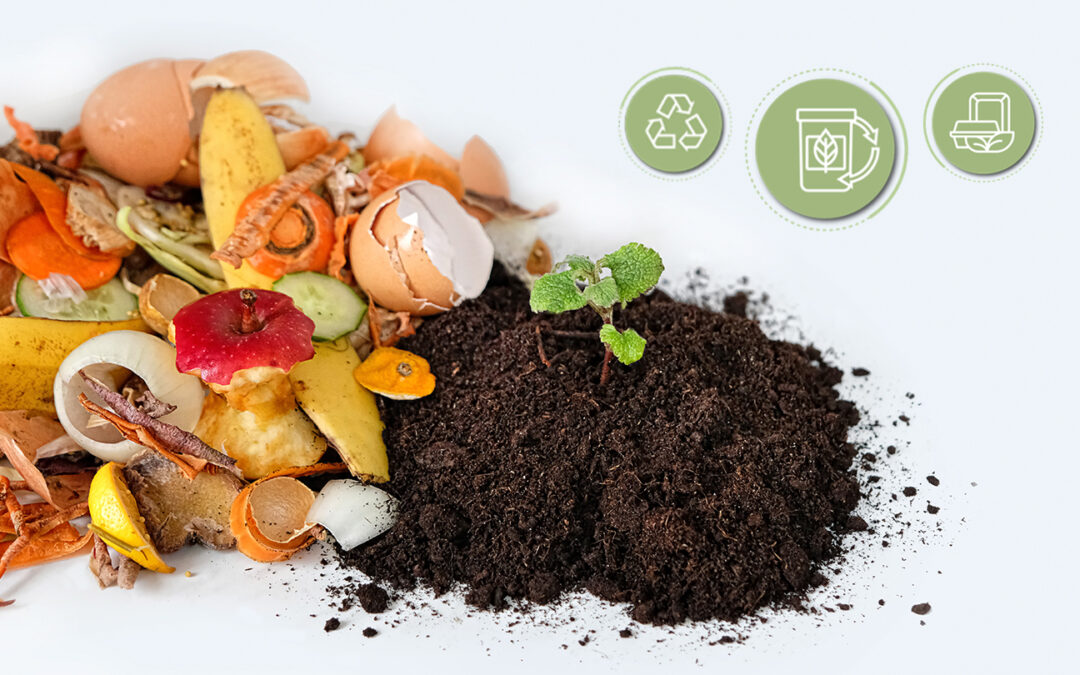The rising concern about the world’s waste problem has become severely evident. Year after year, governments across the globe have imposed many regulations to prevent the use of plastic and continue to implement programs to reduce the rising waste problem. However, there is confusion between the terms “biodegradable”, “recyclable, “and “compostable” since these terms have been used interchangeably. Most importantly, the terms biodegradable and compostable are vastly different and are not interchangeable. The vast majority still misuse the terminology which prohibits them from a secure sustainable future. Without proper understanding and knowledge of the issue and its particular needs, people will continue to be confused. To fix this, we must first understand the difference between the terms.
Biodegradable: (Most misused term)

In short, biodegradable products are simply things that will break down into smaller parts after disposal. However, as stated previously, it is a misused term that creates confusion because biodegradable does not mean it is also compostable or recyclable. The main reason for that is because when something is biodegrading, the item is breaking down into smaller pieces and not providing back to the environment with nutrients when used as compost. More details:
- The term “biodegradable” refers to any material that can be broken down by microorganisms and put into a natural environment
- Breaks down and returns to nature within a reasonably short period
- No consistent definition or certification process exists
- The term is banned from marketing use in certain states such as California
- Both the chemical composition of the item and the way it is stored depend on how it biodegrades
- The majority of all landfills have little light, air, or moisture for the biodegradation process to be effective – hence it only slows down the process.
- Items that are simply listed as biodegradable cannot be placed in a regular compost container – it will not compost.
Recyclable:

Recycling is the process of converting waste materials into new materials and objects. Therefore, it is not biodegradable nor is it compostable since recycling is meant to re-use materials to help conserve resources and divert waste from landfills. There are many rules when it comes to recycling which has caused consumers to think they are the same as compostable/biodegradable. Let me save you time and tell you that this is false because recycling is not the same as biodegradable nor is it remotely comparable to composting. Putting something into a recycling bin does not give the same effect as composting will. For example, if we recycle a plastic tray that is contaminated with food or non-recyclable items, this can ultimately comprise the whole batch causing it to end up in a landfill. More details:
(<6% plastic is recycled)
- Converts waste materials into new or reusable material
- Less than 6% of American plastic waste is recycled
- Every year about 8M metric tons of plastic waste escapes into the oceans
- The Great Pacific Garbage Patch is floating plastic debris twice the size of Texas
- Plastic & EPS foam takes ~500 years to decompose4
- ~30% of landfills are EPS foam
- Can be a great disconnect between what local facilities will accept and what manufacturers and retailers are putting onto the market and saying is recyclable
- Recycling minimizes pollution and helps protects the environment however, some studies suggest that recycling can result in more pollution and higher energy consumption if the right material is not recycled.
- However, products from recycled waste may not be as durable and can break down due to the quality of products manufactured from recycled waste
- Throwing something you may think is recyclable into the recycling bin is often considered wishful or aspirational recycling.
Compostable:

Compostable items are products that are made up of organic elements or plants that can break down into natural elements in a particular environment. Since the item is breaking down into natural elements, it does not harm the environment. and will turn into the soil after 180 days. The microbial process of composting that turns into organic materials has many benefits from reducing land waste, helping the environment, cleaner oceans (no plastics in the oceans – one of the biggest pollutants of the oceans), reducing GHG, and more! More details:
- Breaks down in a controlled amount of time in a commercial facility or under controlled conditions, usually within 180 days
- Can be used to grow new plants
- Composting can be found largely in larger metropolitan cities
- Composting gives benefits of turning things into natural material back into nutrient-rich soil
- Compostable items are a better alternative because instead of going to a landfill or going into recycling to be processed and turned into something else, compostable items however break down in a natural setting or within an industrial facility, to benefit the environment.
- Industrial facilities have the optimal conditions for composting because they regulate the moisture, temperature, and airflow within the facility to ensure the compostable item breaks down.
- Compost helps revitalize and filters local water sources
- Compost can control erosion – compost acts like a sponge and allows more water to enter the ground
- Composting, in the long run, saves disposal costs as trash and littering are expensive to store and dispose of.
After looking closely at what each definition means, it is understandable why most people are confused about the difference. What you need to remember is that the term compostable is vitally different from recyclable and biodegradable. Ensuring that proper terminology is used helps us create an effective sustainable environment. The key takeaway is that all compostable material is biodegradable but biodegradable material is not compostable. Though ‘biodegradable’ suggests that all material is virtually gone, in some cases it may not fully disappear since some items leave metal residue or other particles. Biodegradable items that are labeled “fully biodegradable” are not accepted in a composting facility because it takes too long to decompose which will disrupt the composting cycle. On the contrary, compostable products are biodegradable and will benefit the Earth by supplementing the dirt full of nutrients. Recycling is also commonly misused since the benefits of this method cannot be achieved without proper methodology. Additionally, recycled products do not fully vanish and help the environment as compostable products do. If you would like to learn more, please contact us or visit our products page.

